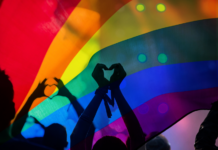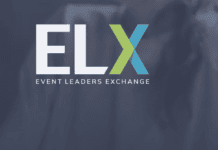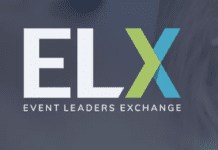 David Kliman has seen a lot of progress when it comes to making LGBTQ+ attendees feel welcome and included — but we’re nowhere near done yet.
David Kliman has seen a lot of progress when it comes to making LGBTQ+ attendees feel welcome and included — but we’re nowhere near done yet.
David Kliman, CMM, a veteran member of the event community, a founding board member of LGBT Meeting Professionals Association and someone who has moderated advisory boards and think tanks for tourism and DMOS, says a recurring theme lately across the board has been, “The topic of inclusion, welcoming, and understanding underserved communities and finding ways to embrace, include and welcome them authentically.”
Kliman’s perspective also is informed by his work as President of The Kliman Group, a consulting practice specializing in maximizing profits for membership and hospitality organizations through the creation, facilitation and management of customer advisory boards, focus groups, strategic planning and marketing communications services. He also is Cofounder of ELX — Event Leaders Exchange, an invitation-only community for global leaders of events from the world’s largest corporations.
Prevue recently caught up with Kliman to learn more.
Prevue: Why do you think there was a need for starting an organization specifically for LGBTQ+ members of the event community?

Kliman: The umbrella organizations — MPI, PCMA, ASAE and others — have a long legacy of opening doors and welcoming the LGBTQ+ community. What once was hidden and secret has become very much mainstream, and all those industry organizations now have LGBT content and social gatherings on the agenda and the leadership is welcoming and inclusive. This is a great thing, and it speaks to overall societal change.
But these organizations never were laser focused on the LGBTQ community, nor should they be. LGBT MPA came into existence to partner with those organizations, not to compete.
Prevue: So you have seen progress over your time in this industry in terms of being more inclusive and welcoming to LGBTQ+ people?
Kliman: I have seen undeniable progress. I remember when these groups had to meet secretly. Now we are front and center.
Prevue: What are some of the challenges we still face in this area?
Kliman: The biggest challenge is the same as the one we see in general American society, which is a divisive political environment. We have states passing discriminatory laws that affect everything from the LGBT community to women’s health and reproductive rights, and this absolutely impacts the meetings industry.
I will say, personally and from the perspective of most industry associations, including LGBT MPA, we believe in that political change can be made on the ground versus through travel boycotts. It’s better to go as an organization to a destination that has discriminatory laws or regulations and make a difference locally through economic impact and political action. Not all organizations take that point of view. Some organizations boycott, and that’s their right. And look, boycotts have been effective. Look at Birmingham, Martin Luther King and the change that the bus boycott in the early 60s had on the civil rights movement. I honor and respect that, but I think in this instance, taking political action and having economic impact on the ground is more impactful than boycotting, which has a detrimental effect on first-line employees.
But this is a general societal issue, and not just in the U.S. More than half of the world’s population is holding federal elections this year. It’s an important time in world history to stand up for what you believe in.
Prevue: How does this more inclusive mindset, in the meetings industry at least, coincide with other industry trends we’re seeing?
Kliman: Starting pre-pandemic, and certainly post-pandemic, we’re seeing a laser focus on crafting attendee experiences that resonate to the core of individuals and groups. Specific to the LGBT market and attendee sector, how can people show up and be part of meetings and events where the experience is wholehearted and not exclusive? Smart event professionals are looking at ways to understand the wide horizon of their attendee base — and it’s not just LGBTQ. It’s neurodiverse, it’s women, it’s men, it’s generational, it’s language, it’s sensory… one size does not fit all.
Understanding that and creating effective meeting experiences and content that resonate well, that’s where this topic intersects with all aspects of the event industry.
Prevue: Do you have any thoughts on how meeting professionals can get started?
Kliman: Ask the question: What can we, the host organization, do to make you feel welcome? What can we, the host organization, do to create content, space, community and networking that’s meaningful? It would be very rare for a meeting of scale not to have 5%, 10%, 15% or 20% of attendees who identify as LGBTQ+, but very few organizations ask that question.
We can ask it the same way we ask other questions, such as about food allergies or preferences, or topics they want to talk about. Simply ask the question and create a safe place for people to provide feedback. We live in a world of extraordinary attention to customization and preferences. Why not welcome all community members?
Prevue: What makes you very hopeful that we are going to continue in this path of making meetings more inclusive for LGBTQ and other underserved communities?
Kliman: I think it will be society that will drive this. We’ve had great progress and we’ve had great roadblocks and regression. So we’ll have to see where society goes.
You May Also Be Interested In…
Exclusive: LGBT MPA Chair Kyle Jordan
Exclusive: Edward Perotti on Leaning into Pride Month
5 Ways to Celebrate Pride Month 2024










